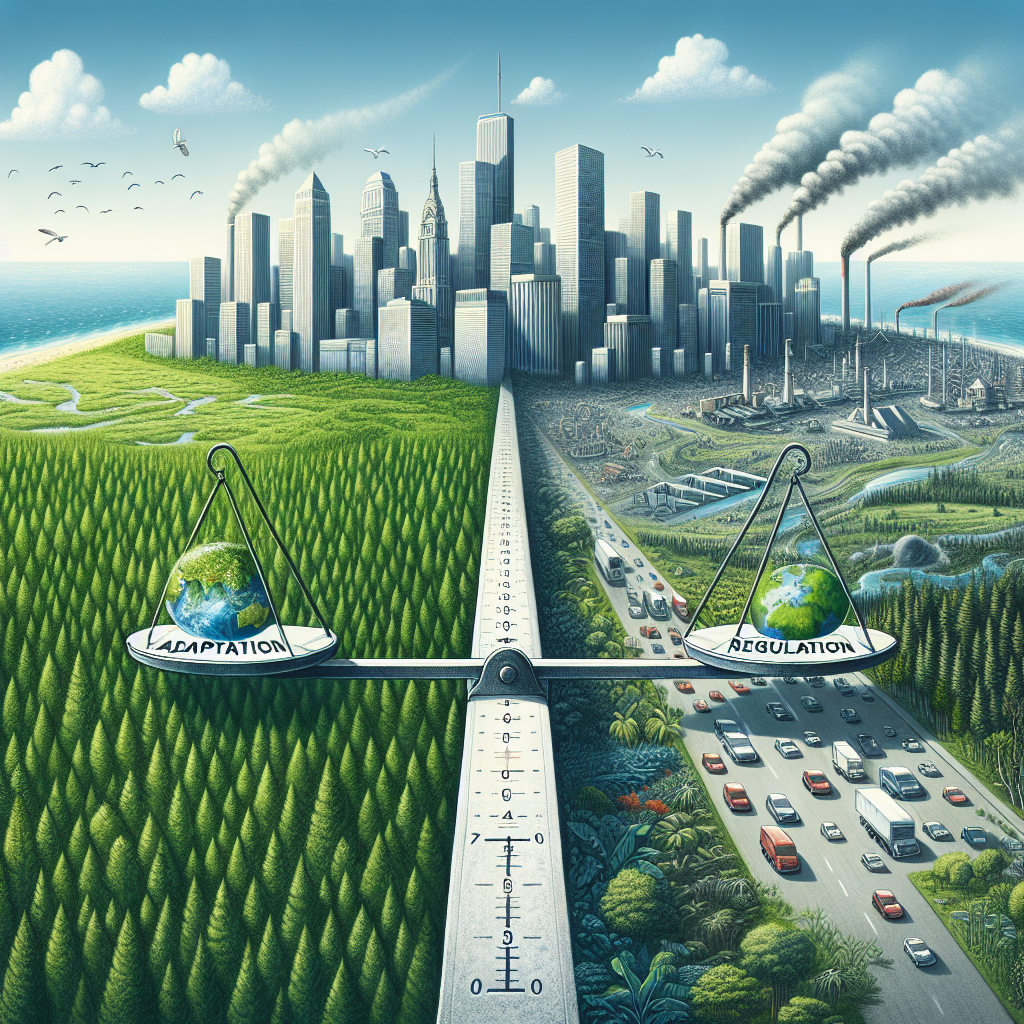Libertarian Perspectives on Climate Change: Adaptation vs. Regulation
In recent years, climate change has emerged as one of the most pressing global concerns, provoking a wide array of responses from various political factions. Among these perspectives, the libertarian viewpoint often emphasizes individual liberty, free markets, and minimal government intervention. This article explores how libertarians perceive climate change through the lens of adaptation versus regulation, analyzing the implications of each approach.
Understanding Libertarianism and Climate Change
Libertarianism is a political philosophy that prioritizes individual freedoms and a limited government role in both economic and social matters. When discussing climate change, libertarians typically advocate for solutions that empower individuals and market mechanisms rather than centralized, government-led initiatives. This philosophy shapes their responses to the pressing global issue of climate change, leading to distinct stances on adaptation and regulation.
The Case for Adaptation in Climate Change
Emphasizing Resilience
Libertarians often argue that adaptation is a more effective response to climate change than regulation. Adaptation strategies enhance resilience by allowing communities and individuals to adjust to changing environmental conditions. This could range from investing in infrastructure designed to withstand extreme weather to adopting agricultural practices that can thrive in altered climates.
Innovation Over Intervention
Libertarians advocate for innovation as the key driver of adaptation. In a free market, businesses are motivated to develop new technologies and solutions that help societies adjust to climate impacts. Whether through renewable energy advancements or improved agricultural techniques, the belief is that innovation can foster effective responses without the need for regulatory overreach.
Local Solutions for Local Problems
Libertarians argue that adaptation can be most effectively managed at the local level. Communities understand their specific environments and can tailor responses to meet their unique challenges without waiting for federal regulations. This localized approach encourages individual initiative and the involvement of community stakeholders.
The Critique of Climate Change Regulation
Market Distortion
One of the core criticisms libertarians hold against climate change regulation is that it often distorts free markets. Regulations can create unnecessary burdens on businesses, hindering their ability to operate efficiently and innovate. When governments impose controls like carbon taxes or cap-and-trade systems, libertarians argue that they undermine the principles of free enterprise.
Bureaucracy and Inefficiency
Libertarians contend that government regulations can lead to bureaucratic inefficiencies that dilute the effectiveness of climate initiatives. They believe that the complexities of regulatory frameworks can stifle growth and innovation. Instead of solving environmental issues, extensive regulations may exacerbate problems, leading to unintended consequences.
The Risk of Overreach
Another concern for libertarians is the potential for government overreach. Climate change regulations can pave the way for expanded governmental power, leading to restrictions on personal freedoms. Libertarians are wary of the slippery slope where climate policies can morph into broader encroachments on individual rights.
Alternative Approaches: Market-Based Solutions
Private Sector Initiatives
Libertarians often promote market-based solutions to climate change as a viable alternative to government regulation. Private sector initiatives, backed by investments and consumer demand, can drive significant change without heavy-handed regulatory frameworks. For instance, numerous companies are investing in sustainable practices, understanding that consumers increasingly prefer environmentally friendly products.
Carbon Credits and Voluntary Compliance
Instead of compulsory regulations, libertarians might support systems like voluntary carbon credits, where individuals and businesses can opt into programs that incentivize reducing carbon footprints. This allows for a market-driven approach to mitigating climate effects while preserving personal freedom.
Education and Awareness
Libertarians advocate for the educational approach in addressing climate change. By raising public awareness about the importance of environmental stewardship and the available market solutions, individuals are more likely to engage in eco-friendly practices without the need for government mandates.
Conclusion: Finding a Balance
In the debate between adaptation and regulation, libertarians lean towards flexible, market-driven solutions that promote individual initiative and localized responses to climate change. While recognizing the reality of climatic challenges, libertarians argue for the empowerment of individuals and businesses to adapt rather than relying on government intervention. By fostering innovation, promoting private sector initiatives, and emphasizing personal responsibility, a libertarian approach to climate change may present a compelling pathway to address this critical issue.
In a world where climate change is an undeniable reality, exploring diverse perspectives like libertarianism is vital to uncovering effective and sustainable solutions. Balancing adaptation and regulation is essential for a comprehensive response to the climate crisis. As such, ongoing discussions are crucial in navigating this complex landscape and finding common ground for a healthier planet.
Share this content:












Post Comment